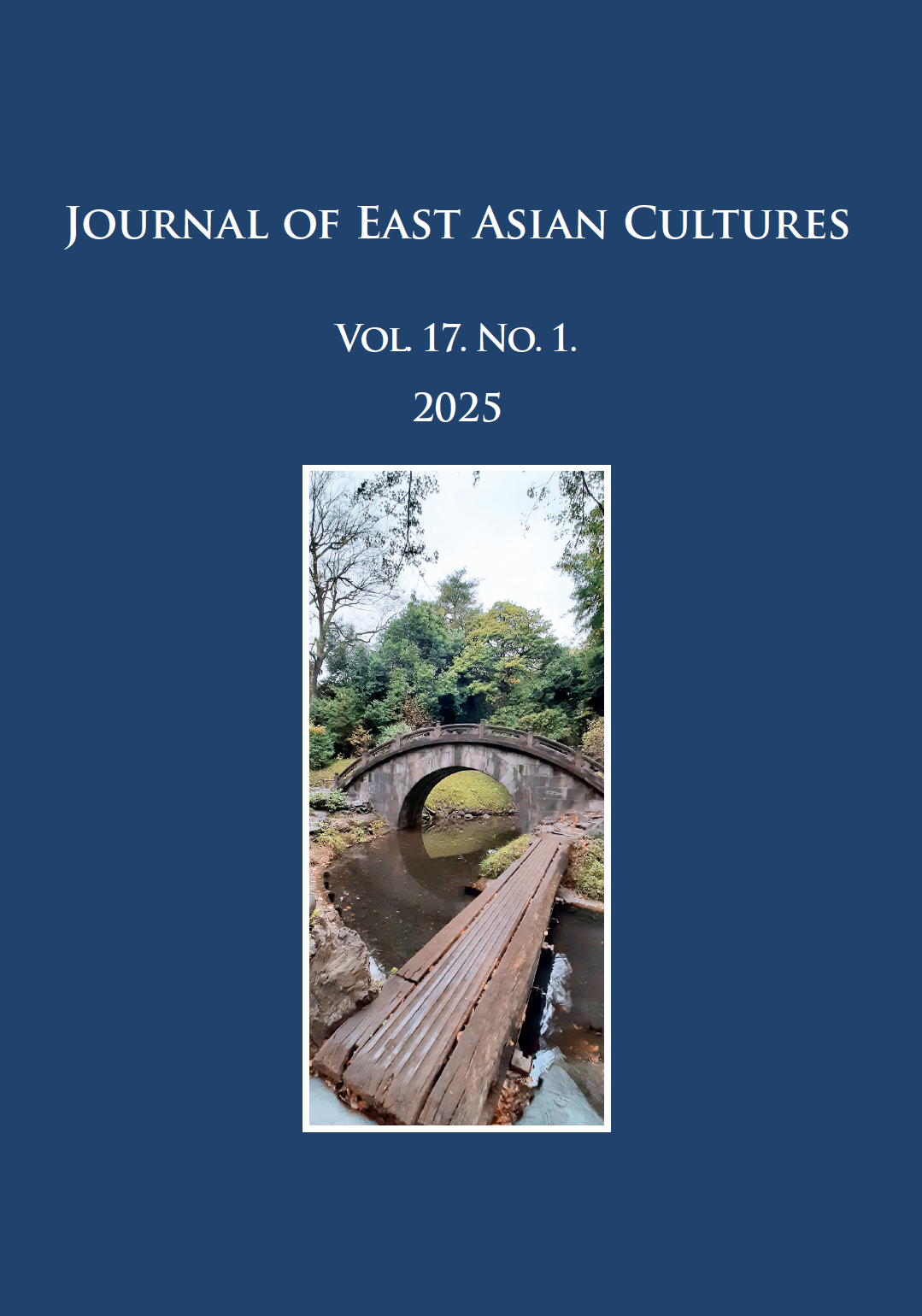Published 2025-01-02
Keywords
- tolerance,
- Buddhism,
- linguistic relativity,
- inclusivism
How to Cite
Copyright (c) 2025 Ferenc Ruzsa

This work is licensed under a Creative Commons Attribution-NonCommercial 4.0 International License.
Abstract
Anyone translating religious or philosophical texts of far-away cultures is painfully aware of the impossibility of the enterprise, essentially on account of the lack of terms with near-identical meaning. However, the words are only the surface: the real problem is with the different concepts they express.
The same problem reappears when we try to describe and understand these cultures. Words like religion, creed, faith, belief, prayer, worship, church, heresy, conversion, and idol are far from the neutral scholarly terms they appear to be: they all are heavily laden with features and associations that derive from the context in which these concepts evolved. These are essentially Christian concepts, and their use about other cultures is ‘Orientalism’ in Said’s sense.
‘Tolerance’ is a pertinent example. For example, Buddhism is generally considered to be an extremely tolerant religion. While this insight reflects a real feature of Buddhism, still it is not true. Buddhism is as tolerant as a deer is vegetarian. The deer does not refrain from eating flesh: it has absolutely no wish to eat, touch, or even smell meat. Buddhism simply does not have the idea that everybody should be Buddhist. The Buddha himself unambiguously expressed his opinion that it is best for people to keep their traditional rites and beliefs. Further, it seems that Buddhism is not a very special case; rather it appears that the idea that other religions should be suppressed is an innovation of the Abrahamic religions only.
There is an important lesson to be learned from this for interreligious and intercultural dialogue. Tolerance is miserably inadequate as a ground for such contacts. You ‘tolerate’ what you do not like, what you would like to annihilate, just out of some practical wisdom you restrain yourself. We do not want to be merely ‘tolerated’; we want to be accepted, esteemed, and possibly even loved—and the same holds for our partners in the dialogue.
This is anything but a light demand on most participants of the dialogue. However, unless they wholeheartedly accept that there are innumerable valid and valuable paths, their ‘interreligious dialogue’ will remain little more than an uncomfortable ceasefire between hostile powers.
References
- DeLancey, Scott 2017. ‘Classical Tibetan.’ In: Graham Thurgood, Randy J. LaPolla (eds.) The
- Sino-Tibetan languages. London–New York: Routledge, 369–384.
- Hacker, Paul 1985. ‘Grundlagen des indischen Denkens [Fundamentals of Indian Thought].’
- In: Paul Hacker, Grundlagen indischer Dichtung und indischen Denkens [Fundamentals of
- Indian Poetry and Indian Thought] (ed. Klaus Rüping). Wien: Publications of the De Nobili
- Research Library, 39–141.
- Hacker, Paul 1983. ‘Inklusivismus [Inclusivism].’ In: Gerhardt Oberhammer (ed.) Inklusivismus:
- Eine indische Denkform [Inclusivism: An Indian way of thinking]. Wien: Institut für Indologie
- der Universität Wien, 11–28. https://doi.org/10.1163/9789004645998_005
- Halbfass, Wilhelm 1988. ‘Inclusivism and Tolerance in the Encounter Between India and the
- West.’ In: Wilhelm Halbfass, India and Europe: An essay in understanding. Albany: SUNY
- Press, 403–418.
- Jones, Alexander (ed.) 1968. The Jerusalem Bible. Reader’s Edition. Garden City, New York:
- Doubleday & Compaaany.
- Kern, Hendrik 1884. The Saddharma-Puṇḍarîka or The Lotus of the Pure Law. The Sacred Books
- of the East XXI. Oxford: Clarendon Press.
- Kroeber, Alfred Louis – Kluckhohn, Clyde 1952. Culture: A Critical Review of Concepts and
- Definitions. Cambridge MA: Peabody Museum.
- Putnam, Hilary 1981. Reason, Truth and History. Cambridge: Cambridge University Press.
- https://doi.org/10.1017/CBO9780511625398
- Quine, Willard Van Orman 2013. Word and Object. Cambridge MA: MIT Press.
- Ruzsa Ferenc 2018. ‘A buddhizmus és más vallások [Buddhism and other religions].’ In: Balázs
- Déri – Ádám Vér (eds.) Religio(nes). A vallás és a vallások [Religio(nes). Religion and the
- religions.]. HAGION Könyvek 3. Budapest: ELTE BTK Vallástudományi Központ, 347–358.
- Ruzsa Ferenc 2017. ‘Sāṁkhya: Dualism without substances.’ In: Joerg Tuske (ed.) Indian Epistemology
- and Metaphysics. New York: Bloomsbury Academic, 153–181.
- Said, Edward W. 2003. Orientalism. London: Penguin Books.
- Sanderson, Alexis 2015. ‘Tolerance, Exclusivity, Inclusivity, and Persecution in Indian Religion
- During the Early Mediaeval Period.’ In: John Makinson (ed.) Honoris Causa: Essays in Honour
- of Aveek Sarkar. Allen Lane, 155–224.
- Sapir, Edward 1985. ‘The Status of Linguistics as a Science.’ In: Edward Sapir, Selected Writings
- in Language, Culture and Personality (ed. David G. Mandelbaum). Berkeley, CA: University
- of California Press, 160–166. Originally in Language, 5 (1929), 207–214.
- Steever, Sanford B. 2020. ‘Introduction to the Dravidian languages.’ In: Sanford B. Steever
- (ed.) The Dravidian languages. London–New York: Routledge, 1–44. https://doi.
- org/10.4324/9781315722580-1
- Sister Vajirā – Story, Francis (tr.) 1998. Last Days of the Buddha: The Mahāparinibbāna Sutta
- (revised edition). Kandy: Buddhist Publication Society, repr. 2007.
- The Jerusalem Bible. Reader’s Edition 1968. Alexander Jones ed. Garden City, New York: Doubleday
- & Company.
- Whorf, Benjamin Lee 1956a. ‘The Relation of Habitual Thought and Behavior to Language.’ In:
- Benjamin Lee Whorf: Language, Thought, and Reality: Selected Writings of Benjamin Lee
- Whorf (ed. John B. Carroll). Cambridge MA: MIT Press, 134–159.
- Whorf, Benjamin Lee 1956b. ‘Science and linguistics.’ In: Benjamin Lee Whorf: Language,
- Thought, and Reality: Selected Writings of Benjamin Lee Whorf (ed. John B. Carroll). Cambridge
- MA: MIT Press, 207–219.
- Whorf, Benjamin Lee 1956c. ‘Languages and logic.’ In: Benjamin Lee Whorf: Language,
- Thought, and Reality: Selected Writings of Benjamin Lee Whorf (ed. John B. Carroll). Cambridge
- MA: MIT Press, 233–245.
- Yue, Anne O. 2017. ‘The Sinitic languages: grammar.’ In: Graham Thurgood – Randy J. LaPolla
- (eds.) The Sino-Tibetan languages. London–New York: Routledge, 114–163.

